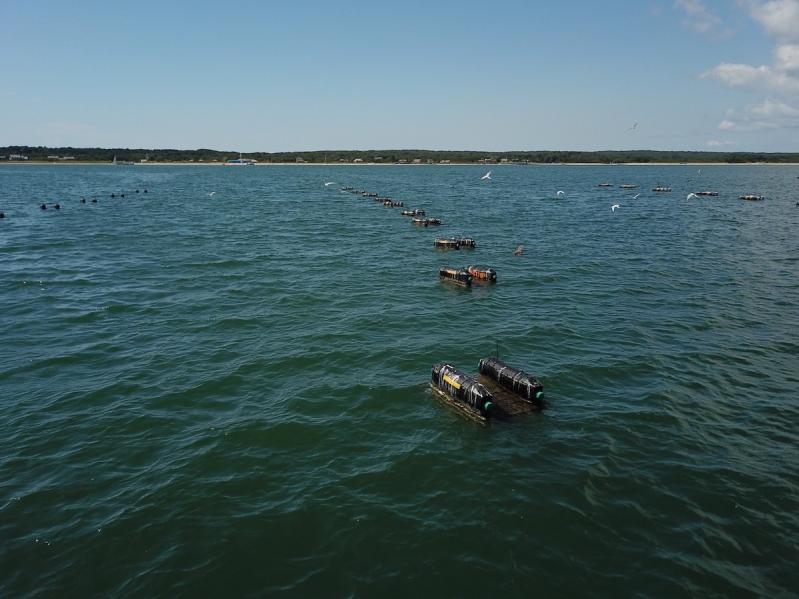The Suffolk Legislature gave its unanimous approval to the county's Shellfish Aquaculture Lease Program, on Tuesday, concluding its first 10-year review by extending it for another decade. In response to complaints from recreational boaters, legislators adopted new cultivation zones and established a lease review board that will include a representative of each of the five East End towns.
SCALP, as it is known, in which up to six 10-acre parcels are leased per year, has proven controversial on the East End, with shellfish farmers and yacht clubs at odds over the use of Peconic and Gardiner's Bays. Throughout the review process, the clubs complained about floating oyster gear, saying that it was a navigational hazard. Some shellfish growers, however, say that suspending gear high in the water makes for significantly greater productivity.
The review process took two and a half years, which included multiple public hearings. It culminated in a Feb. 2 hearing during which some legislators, clearly weary of recreational boaters' insistence on tighter restrictions, expressed sympathy for oyster growers, who portrayed a nascent industry under attack.
The revised cultivation zone map spans around 17,000 acres, representing a 43-percent reduction in area. The review board, which awards leases, will include at least one, but no more than two, members of three stakeholder groups: aqua-culturists, recreational boaters, and wild-harvest baymen. The director of the county's planning division, which oversees the program, will develop guidelines for the board's decision-making.
Applicants will be required to submit a cultivation plan that identifies their gear type. That, Legislator Bridget Fleming said after Tuesday's vote, "will allow potential conflicting stakeholders to at least be heard about their concerns."
"Those new components of the program are the result of a transparent and robust debate from all stakeholders," Ms. Fleming said, "and compromises were struck in order to ensure that the decision making around the award of leases will also be transparent. . . . I expect that the process will be more open, and more likely to really ensure that we can sustain this great program for the long run."
The antagonism between shellfish growers and stake-holders who sought to curb the program was a constant throughout the review, but, Ms. Fleming said, "I have observed over time that in a successful mediation when you have competing stakeholders, you often arrive at a point where everybody's a little bit unhappy. That shows that in fact you have worked through all the issues."
"What does get lost," she went on, "is, this is public land, and this program does grant exclusive access to public land to the farmers who are granted a lease. So while it's very important that we do everything we can to ensure there's terrific aquaculture to survive and grow, we also need to do that in a way that understands that taxpayers have a right to require us to be thoughtful about restricting access to public lands."
Rob Calarco, the Legislature's presiding officer, issued a statement prior to Tuesday's general meeting. "Shellfishing is deeply connected to Suffolk County's historic marine industry, and the SCALP program has been an important part in maintaining that industry's economic viability while also helping improve water quality," he said. "I thank all the members of the advisory group and the administration for the time and attention they put into revising this program and for working diligently to ensure that all stakeholders were involved in the process."




